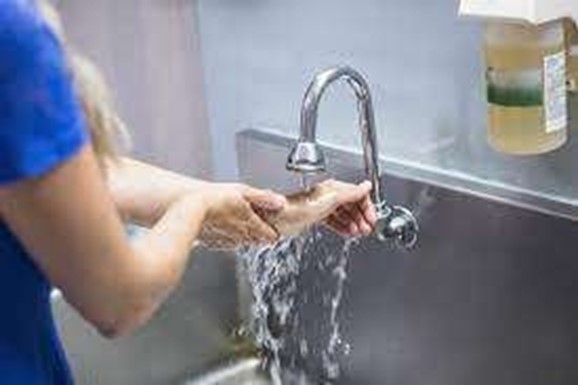A client with end-stage renal disease is receiving peritoneal dialysis.
Which of the following actions should the nurse take to prevent infection?
Administering antibiotics prophylactically.
Performing hand hygiene before and after handling the dialysis equipment.
Allowing the client to handle the dialysis equipment independently.
Discontinuing the peritoneal dialysis if the client develops a fever.
The Correct Answer is B
Performing hand hygiene before and after handling the dialysis equipment is essential to prevent infection in peritoneal dialysis.

Hand washing and appropriate use of a mask can help avoid peritonitis, which is a serious complication of peritoneal dialysis.
Choice A is wrong because administering antibiotics prophylactically is not recommended for peritoneal dialysis patients, as it can increase the risk of antibiotic resistance and adverse effects.
Choice C is wrong because allowing the client to handle the dialysis equipment independently may increase the risk of contamination and infection.
The client should be supervised and instructed by a nurse on how to use sterile technique when connecting and disconnecting the transfer set.
Choice D is wrong because discontinuing the peritoneal dialysis if the client develops a fever may worsen the client’s condition and lead to fluid overload and electrolyte imbalance.
The client should be evaluated for signs of infection and treated accordingly.
Nursing Test Bank
Naxlex Comprehensive Predictor Exams
Related Questions
Correct Answer is ["1.5"]
Explanation
The correct answer is 1.5 tablets.
To find the number of tablets, use the formula: (desired dose / available dose) x 1 tablet.
In this case, desired dose = 0.015 grams, and available dose = 10 mg.
However, these units are not the same, so they need to be converted to a common unit.
One gram is equal to 1000 mg, so 0.015 grams is equal to 15 mg.
Plug these values into the formula: (15 mg / 10 mg) x 1 tablet = 1.5 tablets.
However, since the instructions say to round to the nearest tenth for adult clients, the final answer is 1.5 tablets.
Correct Answer is ["23"]
Explanation
The correct answer is 22.5 mL.
To find the amount of mL, use the formula: (desired dose / available dose) x available volume.
In this case, desired dose = 30 mEq, available dose = 20 mEq, and available volume = 15 mL.
Plug these values into the formula: (30 mEq / 20 mEq) x 15 mL = 22.5 mL.
However, since the instructions say to round to the nearest whole number for adult clients, the final answer is 23 mL.
Whether you are a student looking to ace your exams or a practicing nurse seeking to enhance your expertise , our nursing education contents will empower you with the confidence and competence to make a difference in the lives of patients and become a respected leader in the healthcare field.
Visit Naxlex, invest in your future and unlock endless possibilities with our unparalleled nursing education contents today
Report Wrong Answer on the Current Question
Do you disagree with the answer? If yes, what is your expected answer? Explain.
Kindly be descriptive with the issue you are facing.
